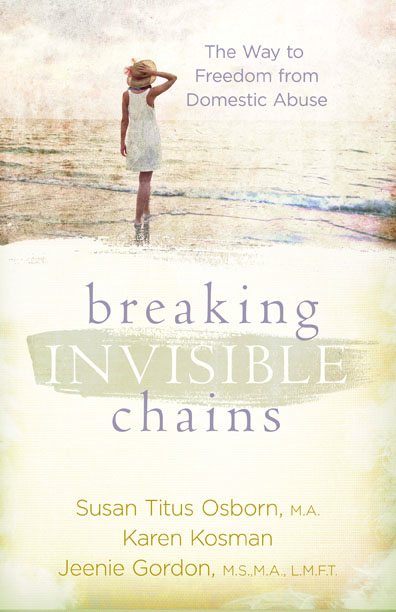What is the difference between a compilation and an anthology?
I think of an anthology as a collection of literary works such as poems, essays, songs, etc.
A compilation, on the other hand, is usually a collection of stories that are somehow related. The Chicken Soup books are an excellent example of this, with each being on a different subject. I wrote a series of compilation books for Broadman and Holman (now B&H Publishing Group). They were Rest Stops for Single Moms, Rest Stops for Busy Moms, and Rest Stops for Teachers. Those contributing were each paid $25, were given a free book, and could buy the books for a discount if they had a ministry. And as Nan mentioned, contributing to these is an excellent way to build some publishing credits.
Many trade books today includes stories about different people who’ve been affected by the issue involved. In my last three books, I’ve included other people’s stories (usually about 30). Personally I think this adds to the credibility of the book. For example, in Too Soon to Say Goodbye, we have stories about people who have lost a loved one to suicide and also stories by people who have been suicidal. We hope that anyone who is dealing with this issue can find themselves in this book and find hope and healing. Although the publisher does not have the funds to pay for these stories, we do give the authors credit, whether under their own name or pseudonym. Also they get a free book and can buy the books at a discount for their own book tables at speaking events. And as was mentioned before, it gives them a publishing credit.
I have also contributed stories to many of my friends’ books, and although I have not been paid for this, people sometimes read one of my stories and track me down. Often they have had a similar experience and just want to talk to me. I think this is an important part of ministry.
I, too, get most of my stories from the various loops I’m on and from writers I have known over the years. Sometimes they write their stories well, sometimes they don’t… I think it’s vital to do a good editing job on all the stories. This can be touchy if you’re dealing with sensitive material. We have had to drop stories we had planned to use because the people wouldn’t go along with our editing.
In my book, A Special Kind of Love: For Those Who Love Children with Special Needs, many of the stories were written by parents who had children with special needs. Most of these were not writers, but they often had gripping stories. It took longer to rewrite the stories than it would have to create new ones, but I think it’s important to keep the stories real and to cover all the aspects of the subject you are dealing with. I often spend more time editing other people’s stories within my book than I do writing my own material. But as I said before, I think the diverse stories strengthen each book.
And that brings us to another topic. I think it is vital to allow the people to read the edited stories before they go to press. It is just as important to get a signed release from them to protect yourself whether you’re publisher wants one or not. If you decide includes stories of others in your book, I’ll be happy to send you my signed release for you to use as a guide.
I mentioned that if you contribute to compilation books, you can usually purchase them at a discount. I know I did this with Chicken Soup for the Christian Woman’s Soul, and I sold quite a few of those on my book table.
And if you’re writing a compilation book, here’s something to keep in mind. In my “Rest Stops Series,” a number of the contributors were my AWSA sisters and CLASS speakers. Some of them requested books to sell at their book tables, and some of them have far more speaking engagements than I do and speak to many more people. Thus they were able to increase the sales of the book.
The publishers of my more recent trade books also allowed those who had stories included to buy copies at a 50% discount to sell on their book tables.
I think contributing stories to other people’s books and having them contribute to yours is a win-win all the way around.
If you are signing a contract or a release for a compilation book, be sure to specify that you are only giving them “one-time rights.” This frees you up to sell the same story elsewhere, and is especially important since the book may not come out for a year or two.
Regarding the proposal, I suggest you divide your compilation book into chapters, with each chapter dealing with a different aspect of your topic. This would be the same as for a regular trade book. If you do it this way, your proposal would be the same. It’s important that the stories you choose all have a common theme for each chapter. They need to be tightly written and not too long. I would try to keep them 600-1,000 words. If you are using other people’s stories, they may require a great deal of editing.
In compilation books, as has been mentioned, usually the authors’ bios are included. These may be at the end of the stories or at the end of the book. We put them at the end of the book for the “Rest Stop” series. In my trade books dealing with issues, I have the stories set apart, with a title for each and the author’s name under the title. Bios are not included. Because I’m dealing with sensitive issues, often the name given is a pseudonym, and the names in the story are changed also. I cannot emphasize enough how important it is to protect the people you are writing about. You don’t want to hurt them in any way. Nor do you want people contributing to your book to hurt others.
Even when publishers do not ask you to get permission for the stories, I would get them anyway to protect yourself. This is true even if they were written under pseudonyms. And I always show the stories to the person who wrote it before it goes to press. Like Cec said, this sometimes opens up a can of worms, but it’s better to do so before it is set in concrete. I certainly don’t want any lawsuits. The biggest problem I’ve had is when I have suggested people use pseudonyms, and they refused. And when it comes out in print, they or their family members are upset.
And sometimes people who are writing under pseudonyms still want certain little insignificant facts in there. This happened a lot in our suicide book. My attitude was to let them have the little insignificant things they wanted. I work them in so the words still flowed. Most of the contributors were dealing with a heavy burden already.
There is an exception to this rule of getting permissions. I know when I have written negative stories, and I have changed an event or place so the person involved would not know, I don’t get permission. I just changed it slightly so that they will not recognize themselves if they happen to read it. I try to do this sparingly though.
We ask people to sign for the life of the book. One friend did a compilation with the one-time rights statement and when the book went into a second printing, one of his writers insisted on a second payment. My friend caved in rather than fight over it.
Sometimes I even write my own stories under a pseudonym if family members would be upset, but I try not to do this very often. I like to write under my own name.


